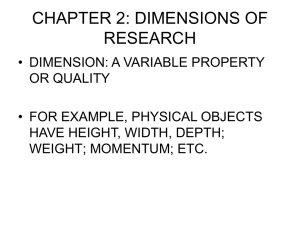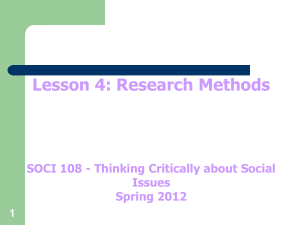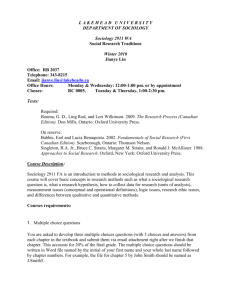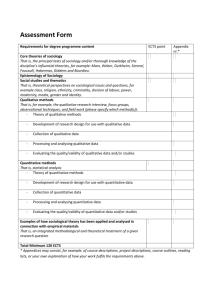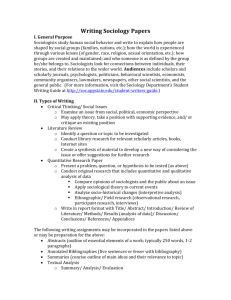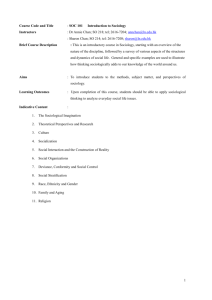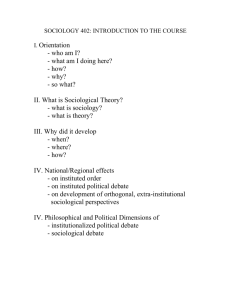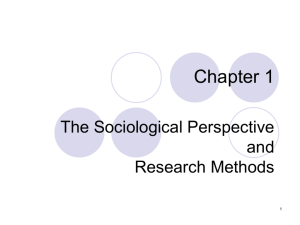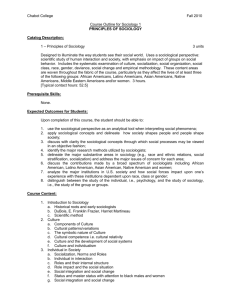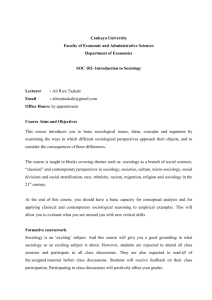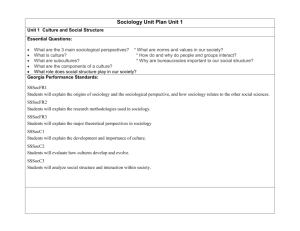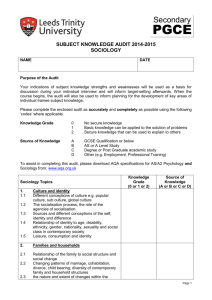Course Outline for Sociology 5, Page
advertisement
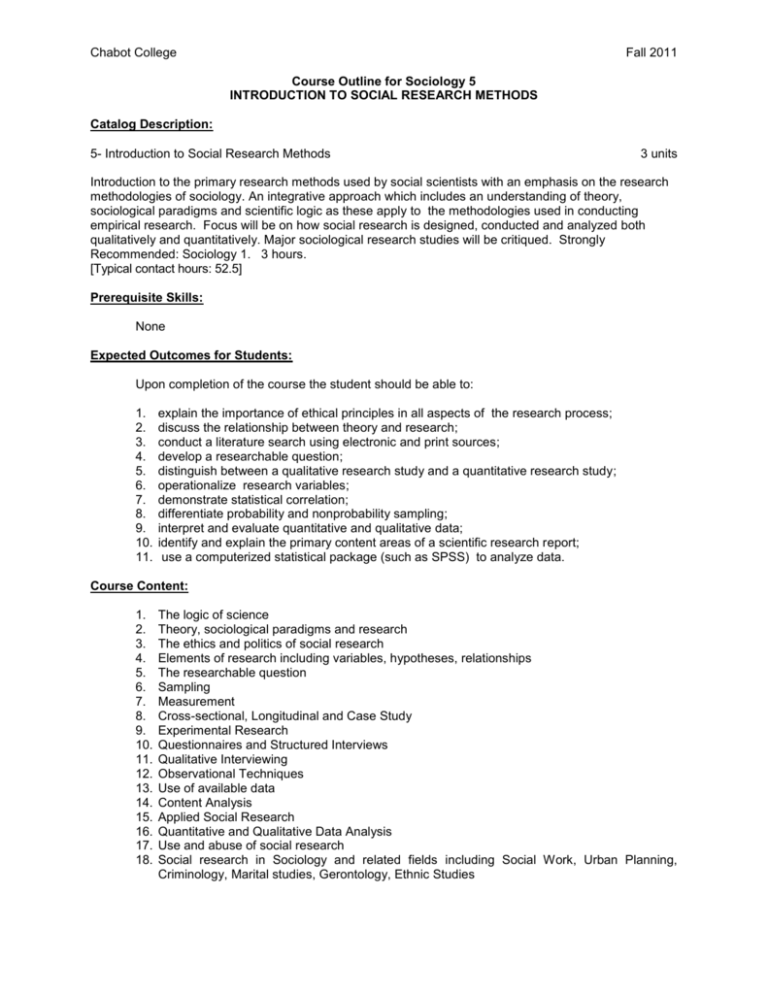
Chabot College Fall 2011 Course Outline for Sociology 5 INTRODUCTION TO SOCIAL RESEARCH METHODS Catalog Description: 5- Introduction to Social Research Methods 3 units Introduction to the primary research methods used by social scientists with an emphasis on the research methodologies of sociology. An integrative approach which includes an understanding of theory, sociological paradigms and scientific logic as these apply to the methodologies used in conducting empirical research. Focus will be on how social research is designed, conducted and analyzed both qualitatively and quantitatively. Major sociological research studies will be critiqued. Strongly Recommended: Sociology 1. 3 hours. [Typical contact hours: 52.5] Prerequisite Skills: None Expected Outcomes for Students: Upon completion of the course the student should be able to: 1. 2. 3. 4. 5. 6. 7. 8. 9. 10. 11. explain the importance of ethical principles in all aspects of the research process; discuss the relationship between theory and research; conduct a literature search using electronic and print sources; develop a researchable question; distinguish between a qualitative research study and a quantitative research study; operationalize research variables; demonstrate statistical correlation; differentiate probability and nonprobability sampling; interpret and evaluate quantitative and qualitative data; identify and explain the primary content areas of a scientific research report; use a computerized statistical package (such as SPSS) to analyze data. Course Content: 1. 2. 3. 4. 5. 6. 7. 8. 9. 10. 11. 12. 13. 14. 15. 16. 17. 18. The logic of science Theory, sociological paradigms and research The ethics and politics of social research Elements of research including variables, hypotheses, relationships The researchable question Sampling Measurement Cross-sectional, Longitudinal and Case Study Experimental Research Questionnaires and Structured Interviews Qualitative Interviewing Observational Techniques Use of available data Content Analysis Applied Social Research Quantitative and Qualitative Data Analysis Use and abuse of social research Social research in Sociology and related fields including Social Work, Urban Planning, Criminology, Marital studies, Gerontology, Ethnic Studies Chabot College Course Outline for Sociology 5, Page 2 Fall 2010 Methods of Presentation: 1. 2. 3. 4. Lecture- discussion Audio- visual aids Class presentations Small group activities Assignments and Methods of Evaluating Student Progress: 1. Typical Assignments a. Analyze a research article from a sociological journal: identifying the research variables, hypotheses, theoretical underpinning, type of research design, and discuss the study results b. Write a testable research question including a brief literature search c. Write a short open-ended interview questionnaire d. Critique news paper articles on current research findings e. Based on empirical research findings, in small groups design and conduct an observational exercise which includes the research question, variables, prediction, data collection and analysis 2. Methods of Evaluating Student Progress a. Examinations and quizzes b. Research papers c. Final examination d. Small group work e. Computer based data analysis exercises Textbook(s) (Typical): The Basics of Social Research, Earl Babbie, Wadsworth., 2011, 5th edition. Analyzing Social Settings: A Guide to Qualitative Observation and Analysis, John Lofland, et al. Thomson Publishers, 2006. An Invitation to Social Research, Emily Stier Alder &Roger Clark, Wadsworth, 2011, 4th edition. Special Student Materials: None. SOCI 5

